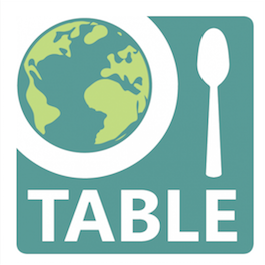
TABLE presents: Ask the author series
In our next session on 30 April @ 13:00 GMT / 14:00 BST / 15:00 CEST, we will discuss Simon Bush and colleagues’ recent publication in Nature: A 20-year retrospective review of global aquaculture (Access the full article).
The paper reviews the development of the global aquaculture sector between 1997 and 2017, including trends in feed efficiency and reliance on both marine and land-based feed ingredients, and discusses challenges faced by the sector. Future opportunities identified by the paper for improving food security and environmental performance include mollusc farming and recirculating aquaculture systems.
Read TABLE's summary of this publication. Please find the paper's abstract below.
Register for the event here
Ask the author sessions are an intimate space for a detailed discussion about the research and its implications with participants from a range of disciplines and sectors. Each of these sessions has space for up to 25 active participants, who we ask to read the paper beforehand and prepare comments or questions in advance. To keep the events accessible for everyone, we will stream the event via Zoom Webinar. Here attendees can watch the event and type their questions or comments in the Q&A section, which we will try to bring into the discussion. We will also encourage authors to answer comments and questions in the Q&A section.
Abstract
The sustainability of aquaculture has been debated intensely since 2000, when a review on the net contribution of aquaculture to world fish supplies was published in Nature. This paper reviews the developments in global aquaculture from 1997 to 2017, incorporating all industry sub-sectors and highlighting the integration of aquaculture in the global food system. Inland aquaculture—especially in Asia—has contributed the most to global production volumes and food security. Major gains have also occurred in aquaculture feed efficiency and fish nutrition, lowering the fish-in–fish-out ratio for all fed species, although the dependence on marine ingredients persists and reliance on terrestrial ingredients has increased. The culture of both molluscs and seaweed is increasingly recognised for its ecosystem services; however, the quantification, valuation, and market development of these services remain rare. The potential for molluscs and seaweed to support global nutritional security is underexploited. Management of pathogens, parasites, and pests remains a sustainability challenge industry-wide, and the effects of climate change on aquaculture remain uncertain and difficult to validate. Pressure on the aquaculture industry to embrace comprehensive sustainability measures during this 20-year period have improved the governance, technology, siting, and management in many cases.
Reference
Naylor, R.L., Hardy, R.W., Buschmann, A.H., Bush, S. R., Cao, L., Kllinger, D. H., Little, D. C., Lubchenco, J., Shumway, S. E. and Troell, M. (2021). A 20-year retrospective review of global aquaculture. Nature, 591, 551–563.

